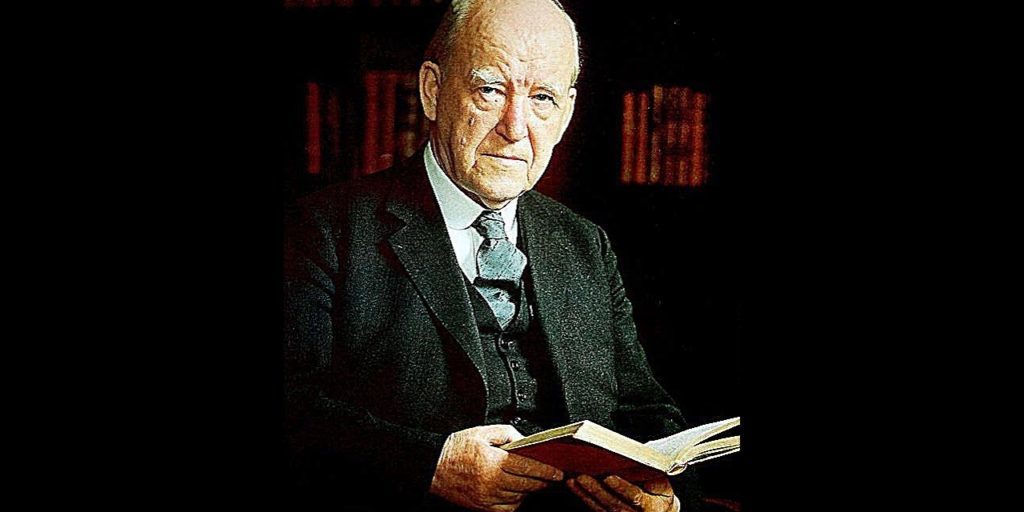
Finding Clarity in Confusion: Understanding Lloyd-Jones’s 1966 Address
Confusion hung over the crowd of the Second National Assembly of Evangelicals like a cloud of secondhand smoke. Moments earlier, the famed pastor D. Martyn Lloyd-Jones had appealed for the creation of a new evangelical association. He believed an evangelical exodus from mainline denominations would facilitate “a mighty revival and re-awakening.” As he brought his appeal to an end, everyone seemed to know what was expected of him or her. The evangelical leader John Stott shared this impression believing his audience would “go home and write their letter of resignation that very night.” Fearing that this assembly which had been formed to further ecumenicism was about to condemn ecumenicism, Stott broke professional protocol and proclaimed, “I believe history is against what Dr. Lloyd-Jones has said…Scripture is against him, the remnant was within the church not outside of it. I hope no one will act precipitately.”
The battle had been engaged. Yet few in attendance could clearly articulate why these two leaders of British evangelicalism had exchanged blows. Both seemingly advocated for the gospel, the supremacy of the Scriptures and unity. Yet they had both just thrown verbal punches at one another. The crowd was confused. Historians and theologians are still confused about what happened. The debate over whether or not Lloyd-Jones was a unifier or schismatic still smolders in more than one evangelical fire pit and will not be put out anytime soon. Click To Tweet
Much of the confusion over what had transpired on October 18, 1966 centered upon the content of Lloyd-Jones’s now famous speech “Evangelical Unity: An Appeal.” Stott and the evangelical press of the day believed that the Doctor’s speech “should be interpreted as calling for evangelicals to leave mixed denominations.” They believed Lloyd-Jones was schismatic, working against the unifying influences that had risen to prominence in British evangelicalism during the 1960s.
By contrast, the supporters of the Doctor believed Lloyd-Jones had offered a positive appeal that had little to do with the creation of a new denomination. His grandson and historian, Christopher Catherwood, concluded, “The doctor was arguing for unity, not for division or schism.” The debate over whether or not Lloyd-Jones was a unifier or schismatic still smolders in more than one evangelical fire pit and will not be put out anytime soon.
Though many scholars huddle about the fires that seek to illuminate the Doctor’s intentions, little effort has been devoted to understanding why Lloyd-Jones’s speech proved confusing. Though scholars have credited Stott, the evangelical press, and Lloyd-Jones with igniting the fire of controversy, they have not examined why Lloyd-Jones’s 1966 address was so ready for the kindling.
Why the Confusion?
Lloyd-Jones’s address lacked clarity in part because it lacked Scripture. Though Lloyd-Jones believed evangelicalism had reached a “most critical moment” in 1966, he approached this monumental times with a closed Bible. He referenced the Word of God only twice during his speech, mentioning Acts 2:42 and the “First Epistle to the Corinthians.” He spent more time discussing the Reformation than exegeting the Word of God. Consequently, J.I. Packer would conclude the Doctor had contended for a kind of Puritanism. Other listeners believed the Doctor had been consumed with denominational concerns. Catherwood wrote his grandfather had placed “his emphasis on structure rather than doctrine.” The Doctor had been misunderstood because he stood upon logic and church history instead of the Scriptures. Because of this mistake, he suffered the loss of both friends and influence.
The Lessons of Failure
Pastors, theologians, and lay leaders should take note of Lloyd-Jones’s failure. The man who had devoted his life to glorifying God through sermons designed “to make doctrine real to the heart and therefore permanently life-changing” had stepped out from underneath the shadow of the Scriptures. Without the Word of God, the Doctor’s logic and knowledge of church history proved to be as vibrant as a water-soaked piece of charcoal. He read his Bible regularly. He knew it and loved it. At the very end, when he couldn’t speak, he would point to verses out of it. Click To Tweet
If Christians wonder into ecclesial, social, or political spheres without the Scriptures, they too risk being misunderstood by their listeners. Such presentations may win some adherents in the moment, but they will not advance the gospel, strengthen the Church, or edify local congregations. Lloyd-Jones correctly noted, “You cannot build up a church on apologetics, still less on polemics. The preacher is called primarily to preach the positive Truth.” The Christian’s ability to influence others rests upon his or her ability to exegete and teach the gospel. The Christian has no other power. The people of God must ground their arguments in the Word if they hope to influence hearts.
Lloyd-Jones: A Man of the Scriptures
In many respects, Lloyd-Jones would recover from the wounds of the 1966 controversy because he never wandered far from the Scriptures. Over the course of his life, he lived by the maxim, “Any doctrine that we claim to believe from the Bible must always clearly be found in the Bible.” Three years after the controversy of 1966, the Welsh pastor delivered perhaps his most famous lectures in Philadelphia. These addresses would later be edited and published under the title, Preaching and Preachers. His influence did not stop with this volume. Crossway and Banner of Truth continue to release new editions of his sermons and lectures which cover everything from Romans to the Psalms to the theology of parenting. He was a profoundly biblical man. As his daughter Elizabeth Catherwood noted, “He read his Bible regularly. He knew it and loved it. At the very end, when he couldn’t speak, he would point to verses out of it.” The Doctor remains a fixture upon the evangelical mantel because he loved the Word.
Lloyd-Jones, the Scriptures and 1966
Even his 1966 address had been sparked by his earlier exegetical work. Many of the arguments the Doctor put forward in 1966 had appeared in a booklet he wrote in 1962. In those pages, Lloyd-Jones built his understanding of ecumenicism upon his exegesis of John 17 and Ephesians 4. The booklet restated the conclusions of numerous exegetical sermons he had preached at Westminster Chapel in the 1940s and 1950s. Though Lloyd-Jones shared only his logical conclusions in 1966, they were conclusions that had been extracted from the Scriptures. He had not abandoned his principles. Rather, he had forgotten to fully share them. This oversight doomed the Doctor’s address.
The Scriptures clarify and empower our thoughts; our thoughts do not clarify and empower the Scriptures. Regardless of the Christian’s training, intellect, and persuasiveness, nothing can compensate for the absence of the plain and powerful words of the Scriptures. As Lloyd-Jones said in 1969, “What matters is not the man or his ideas: it should always be this Word, for it alone is the sources of the preacher’s authority.” May God keep us grounded in this Word.
“We are always to give the impression…that what we are saying comes out of the Bible, and always comes out of it.”

